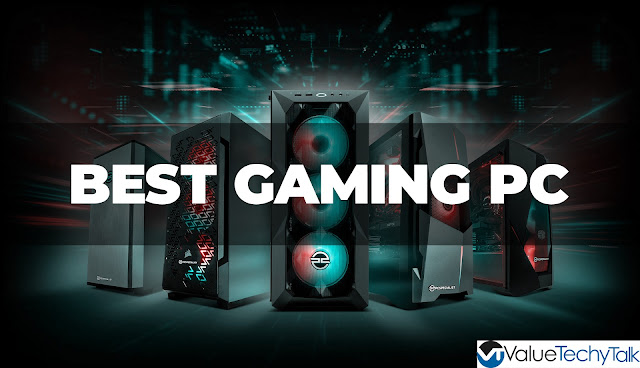Introduction
Gaming has evolved from a simple pastime into a competitive and immersive experience that demands the best technology available. If you're a dedicated gamer, you understand that a high-end gaming PC is essential for delivering top-tier graphics, fast frame rates, and smooth gameplay. In this comprehensive guide, we'll walk you through the components and considerations necessary to build the best gaming PC for an unmatched gaming experience.
1. Choose the Right Components
A gaming PC is only as good as its components. Here's a breakdown of the key parts you need to consider:
a. Central Processing Unit (CPU): Select a powerful CPU from Intel or AMD to ensure your system can handle the latest games with ease. Multi-core processors are ideal for gaming, as they provide the processing power required for demanding games.
b. Graphics Processing Unit (GPU): The GPU is the heart of gaming performance. Invest in a high-end graphics card from NVIDIA or AMD for the best visual experience. Look for models with ray tracing and high VRAM for exceptional graphics.
c. Motherboard: Choose a motherboard that supports your CPU and GPU, has ample PCIe slots for expansion, and offers modern connectivity options like USB-C and Wi-Fi.
d. RAM: Opt for at least 16GB of fast DDR4 RAM to ensure smooth gaming and multitasking. For a high-end setup, 32GB or even 64GB is recommended.
e. Storage: Consider a combination of SSD and HDD storage. An NVMe SSD for your OS and most-played games will result in lightning-fast load times, while an HDD provides ample storage for the rest of your game library.
f. Power Supply (PSU): Select a power supply that can deliver sufficient wattage to your components, with some headroom for upgrades. A modular PSU makes cable management easier.
2. Cooling Solutions
An efficient cooling system is vital to prevent overheating and maintain peak performance. You can opt for air cooling or liquid cooling, depending on your preferences and budget. Make sure your CPU and GPU are adequately cooled to avoid throttling during intense gaming sessions.
3. Case Selection
Choose a PC case that accommodates your components and has good airflow. A well-ventilated case not only keeps temperatures down but also adds to the aesthetics of your gaming rig. Additionally, consider cases with cable management options for a clean and organized interior.
4. Monitor Selection
To make the most of your gaming PC, you'll need a high-quality monitor. Select a display with a high refresh rate (144Hz or higher), low response time, and adaptive sync technology (G-Sync or FreeSync) to eliminate screen tearing. A high-resolution monitor (2K or 4K) ensures crisp visuals.
5. Peripherals and Accessories
Invest in gaming peripherals, such as a mechanical keyboard, gaming mouse, and comfortable headset with good sound quality and a clear microphone. A gaming chair and desk designed for extended gaming sessions can also enhance your gaming setup.
6. Software and OS
Install a gaming-friendly operating system like Windows 10 or 11. Optimize your PC for gaming by updating drivers, adjusting in-game settings, and using game-enhancing software.
7. Upgrades and Maintenance
Plan for future upgrades by ensuring your motherboard has extra slots and your PSU can handle more powerful components. Regularly clean your PC to prevent dust buildup, which can impede cooling performance.
Conclusion
Building the best gaming PC involves selecting the right components, ensuring proper cooling, and considering your peripherals and accessories. With careful planning and attention to detail, you can create a gaming rig that delivers unbeatable performance and takes your gaming experience to new heights. Whether you're into competitive eSports, open-world adventures, or immersive VR, a well-built gaming PC is your ticket to the ultimate gaming experience.

